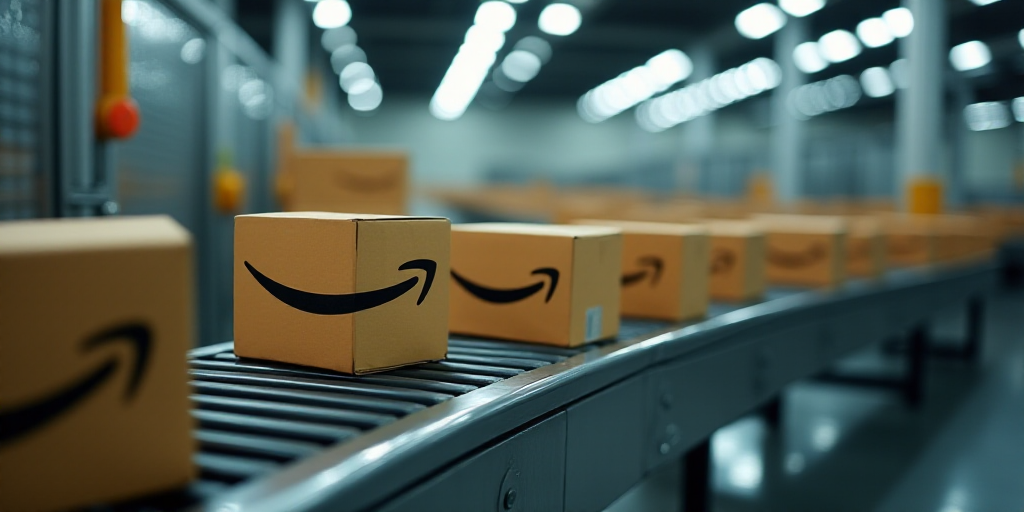Background on the Key Players
Amazon, an American multinational technology company based in Seattle, Washington, is a global leader in e-commerce, digital streaming, and artificial intelligence. With over 300 million active users and a presence in more than 175 countries, Amazon’s influence on the global market is undeniable.
The White House, located in Washington D.C., serves as the executive head of the U.S. federal government. Its press secretary, Karoline Leavitt, is responsible for communicating the administration’s policies and positions to the public.
The Controversy
On Tuesday, White House spokesperson Karoline Leavitt described Amazon’s plan to reveal the impact of tariffs on product prices as “hostile” and a “political act.” This statement came after Amazon expressed its intention to detail how increased tariffs affect the prices of goods sold on its platform.
Amazon’s Announcement
In an effort to maintain transparency with its customers, Amazon announced that it would disclose the effects of tariffs on its product prices. The company aims to help consumers understand how external factors, such as trade policies, influence the costs of goods available on its marketplace.
White House Response
In response, the White House criticized Amazon’s announcement, labeling it as “hostile” and a “political act.” The administration seems to view Amazon’s move as an attempt to sway public opinion against current trade policies.
Implications and Reactions
This controversy highlights the complex relationship between big tech companies and governmental bodies. Critics argue that Amazon’s announcement could undermine the administration’s trade policies, while supporters claim it promotes transparency and empowers consumers.
- Amazon’s Perspective: The company believes that by disclosing the impact of tariffs on product prices, it is providing valuable information to its customers and fostering a more informed marketplace.
- White House Perspective: The administration views Amazon’s announcement as an attempt to influence public opinion against its trade policies, labeling the move as “hostile” and “political.”
- Industry Impact: This situation may encourage other companies to take similar stances on politically-charged issues, potentially leading to increased tension between businesses and governmental bodies.
Key Questions and Answers
- What is the controversy about? The White House criticized Amazon’s plan to disclose the impact of tariffs on product prices, labeling it as “hostile” and a “political act.”
- Who are the key players involved? Amazon, a global e-commerce leader, and the White House, representing the U.S. federal government, are the main parties in this controversy.
- What is Amazon’s intention? Amazon aims to maintain transparency with its customers by detailing how external factors, such as tariffs, affect product prices on its platform.
- How did the White House respond? The administration viewed Amazon’s announcement as an attempt to sway public opinion against its trade policies, labeling the move as “hostile” and “political.”






